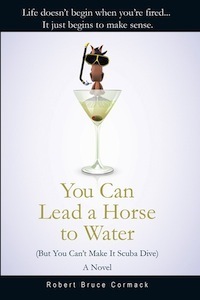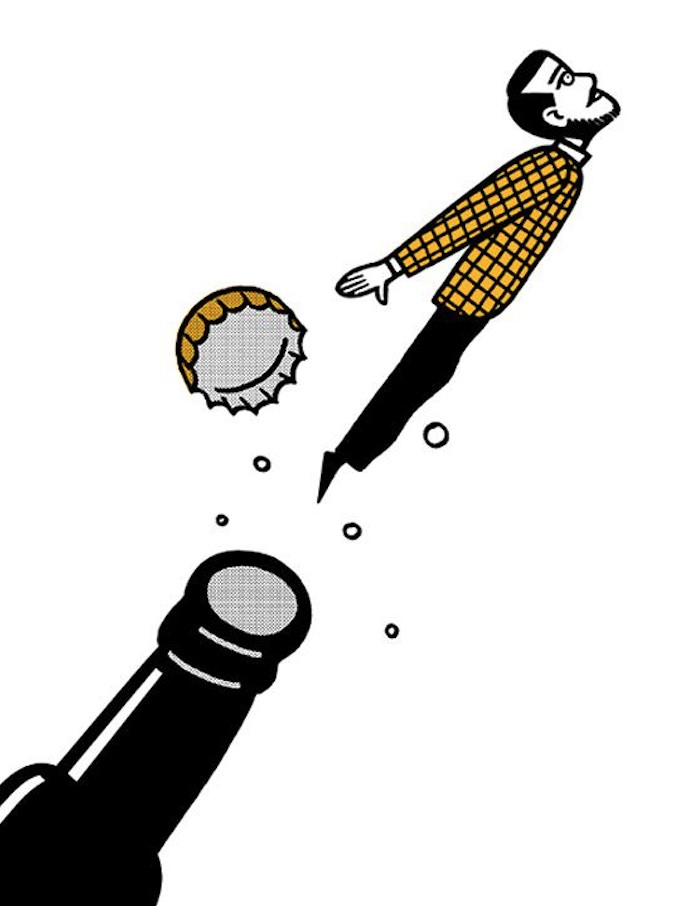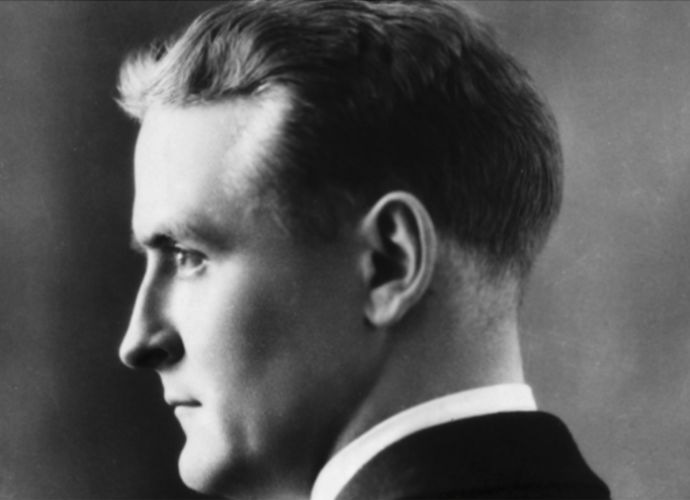Think More. Write Less. Follow Clint.

“Hard writing makes easy reading. Easy writing makes hard reading.” William Zinsser (author of “On Writing Well”)
The worst piece of advice on writing goes to Ernest Hemingway. He once said “Writing is easy. All you do is sit down at the typewriter and bleed.” I’m not saying it isn’t a good quote. I just wish writers would spend less time bleeding and more time looking for Band-Aids.
Too many people think writing is about expression. That puts us in the ballpark of a few billion people. We all express, but what separates a good writer from, say, a shopkeeper is knowing when to stop. Actually, shopkeepers probably know when to stop better than most writers. They see bored customers leaving a lot sooner than a writer see a loss of readers.
Maybe that’s the problem. If writers could see their readers leaving, they might improve — but they don’t. It’s like a comedian not being able to see the audience’s faces. He keeps tossing out one lousy joke after another, finally saying at one point, “You’re a tough crowd,” and expecting a laugh.
Well, the reading audience is a tough crowd. Even social media is far tougher than writers imagine. I say “imagine” because most writers — like the comedian — don’t see the looks on peoples’ faces. They can’t see the wincing or the rolling eyes. So they write to bleed, figuring if they churn out 4,000 words, people will respect them more.
Actually, the reverse is true. We respect those who explain things in simple terms. If Mark Zuckerberg can describe Facebook as “Something where you can type someone’s name and find out a bunch of information about them,” surely writers can stop flinging words around like confetti.
Learn to Read Out Loud (Like Clint Eastwood, Not Lucy Ricardo)
So how does a writer hone their writing? First you have to want to be brief. Then you have to learn to read your work aloud. I know a lot of famous writers advise this. What they don’t advise is the voice to use. This is absolutely critical. If you’re going to sound like Lucy Ricardo, you won’t edit your work at all (she never did and look where it got her).
You’ll notice I said Lucy Ricardo, not Lucille Ball. Ball created Lucy Ricardo, using her comical jabber for effect. In real life, Ball was the complete opposite.
Which brings me to Clint Eastwood. Obviously, he wasn’t one to mince words. Yet hearing him say “Are you feeling lucky, punk?” speaks volumes about the man. If he’s quotable — and who can’t quote Clint Eastwood — we remember the simplicity as well as the delivery.
I’m not suggesting you have to write like Clint Eastwood. I’m saying you have to hear him say your words. Hearing and writing are two different things. It’s what happens to your ears when the words come out of your mouth. If they come out sounding like Eastwood, you’re probably in a good place.
Listen to his dialogue and you’ll notice very few adjectives or adverbs. As Stephen King once said “The road to hell is paved with adverbs.” Imagine if Eastwood had said “Are you feeling particularly lucky today, punk?” he would have been back doing Rawhide instead of Fist Full of Dollars.
Brevity is a sound. It’s clipped, it’s clear, it’s unmistakable. Elmore Leonard might have used Eastwood’s voice. So many of his characters sound roughhewn and to the point. It was all intentional and, no doubt, crafted. “If it sounds like writing,” Leonard explained, “I rewrite it.”
Don’t Create Word Mountains Out of Word Molehills
Reading aloud is like hearing a transcript back in court. Your first reaction is to ask for a retrial. “Did I really say that?” you ask, knowing it’s you, and only you could have said it. We’re all guilty of this. That’s why some writers won’t read their stuff out loud. They’re afraid of what they might hear.
Instead, they write on and on, checking their word counts, feeling pretty good about themselves. Nobody’s told them they’re creating word mountains out of word molehills. The idea of reducing, editing, murdering the occasional darling, never occurs to them.
If they heard how their words really sounded, they’d be shocked — they’d probably want every word stricken from the record. There’d be endless “Did I say that?” like it was all involuntary, like they weren’t in a “sane place.”
“Few people realize how badly they write,” William Zinsser wrote. “Nobody has shown them how much excess or murkiness has crept into their style and how it obstructs what they’re trying to say.”
To write is to cut out the bad bits. When you hear them out loud, you realize they’re bad for a reason. They’re trite and they sound trite.
“I don’t worry so much about the words as the honestly,” Clint Eastwood told a reviewer. After a long career of over sixty movies, he must have learned which words ring true and which don’t.
Take Out The Words Nobody Needs to Hear
In a comment I made to another writer on beBee, I said “The more you write about a subject, the more you convince people you either know what you’re talking about or you don’t. Very often, you end up proving you don’t.”
One way to avoid this is to limit the words nobody needs to hear. Eastwood made a point of this throughout his career. If it didn’t sound like him, he wouldn’t — or couldn’t — say it.
Anyone who says, “Well I’m writing, not speaking,” is drawing a distinction that doesn’t exist. Words are words. Any form they take, any medium they populate, must do the same job. You’re not writing to show how much you know. You’re writing to interest your audience. They don’t care about your opinions as much as they care about your insights.
That doesn’t come from writing more, it comes from knowing how little you need to get your point across. You have to see the reader, imagining them sitting across from you saying “Go ahead, make my day.”
If you aren’t making their day, you need to listen to Clint Eastwood.
Robert Cormack is a freelance copywriter, novelist and blogger. His first novel “You Can Lead a Horse to Water (But You Can’t Make It Scuba Dive)” is available online and at most major bookstores. Check out Yucca Publishing or Skyhorse Press for more details.

""
Articles from Robert Cormack
View blog
In honour of Women's Day, let's see which is more offensive. · “Life is tough, darling, and we’d bet ...

All I did was write the first Canadian rock jingle. · I still remember how we wore our jeans with le ...

A year later, he earned 20 times that. · “No decent career was ever founded on a public.” F. Scott F ...
Related professionals
You may be interested in these jobs
-

Développeur React
2 days ago
Shopistry CanadaReact Developer - Saaslify X - Webflow Ecommerce website template Sr. React Developer · Contract Canada Lorem ipsum dolor sit amet, consectetur adipiscing elit vel ut congue varius congue aliquet leo netus neque nibh semper in diam viverra nibh aliquam elit amet orci et dolor, f ...
-

UI/UX designer developer
2 days ago
Shopistry CanadaUI/UX Designer / Developer - Saaslify X - Webflow Ecommerce website template UI/UX Designer / Developer · Full time Canada Lorem ipsum dolor sit amet, consectetur adipiscing elit vel ut congue varius congue aliquet leo netus neque nibh semper in diam viverra nibh aliquam elit am ...
-
Application Technologist
14 hours ago
FPS Food Process Solutions Richmond, Canada Full timePosition Scope · The Application Technologist gets involved with system design, creating technical drawings, and drafting support documents related to the equipment offered. Strong communication skill is required to explain technical concepts to our customers. · Key Responsibilit ...


Comments
Robert Cormack
7 years ago #13
Or just overcome, Laurent Boscherini. Thanks.
Robert Cormack
7 years ago #12
Laurent Boscherini
7 years ago #11
Robert Cormack
7 years ago #10
Devesh 🐝 Bhatt
7 years ago #9
True, editing is a must. It has to simplify further if it is important. Sadly, the trend is to seek elaborate logically coherent expressions , make them cynic proof . I think that spoils it too. It may sound foolish but i never tried to learn editing, i just end up rewriting again and again and ending up with a poem, but my article remains a mess. Anything i can do about it?
Robert Cormack
7 years ago #8
Devesh 🐝 Bhatt
7 years ago #7
Robert Cormack
7 years ago #6
Pascal Derrien
7 years ago #5
OK that will take me 12 hours because I only have half a brain available to me today :-)
Robert Cormack
7 years ago #4
I'm actually finishing a book on advertising Gert Scholtz, which includes some of the same information (just as important in copywriting—possibly more so). Thanks.
Robert Cormack
7 years ago #3
Gert Scholtz
7 years ago #2
Pascal Derrien
7 years ago #1